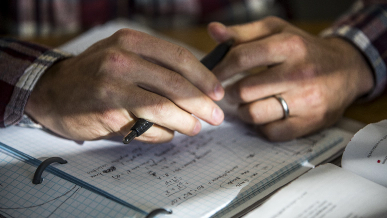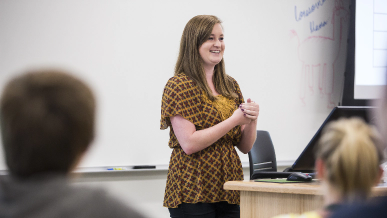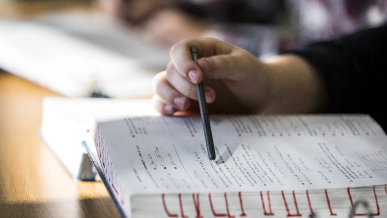
The following careers are very mathematics centered, though in many cases additional training beyond a mathematics degree (or at least beyond a B.S. Mathematics degree) is needed to qualify for employment in these fields: actuarial work, education, research analysis, cryptology, systems analysis, robotics engineering, design modeling (creating cost efficient models), geomatics engineering, photogrammatism, stock trading, biomathematics, accounting or auditing, population ecology, aspects of forensic analysis and some types of computer programming design.
Credits to Completion
120
Graduates of this program are able to accurately interpret and translate pictorial and descriptive information into mathematical statements; solve problems quantitatively and communicate results clearly; demonstrate understanding of numeric, algebraic and geometric reasoning; and, demonstrate computational skills in areas of applied mathematics.
Credits to Completion
120
Statisticians assist in the collection and analysis of data thus providing decision makers information on which to base decisions. Knowledge of statistics and data handling helps students in almost every discipline. There are many opportunities in the job market for students with a degree in Statistics, and the program is ideal as preparation for a graduate degree in Statistics in any major university. The degree offers a wide variety of applied and theoretical courses in statistics, including statistical computing using both SAS and R programming.
Credits to Completion
120
The AA and AS mathematics programs are intended to prepare students for the pursuit of a bachelor's degree. Those intending to transfer to other institutions should check transferability of courses with the institutions to which they intend to transfer. Following are the key knowledge, skill and ability goals of the AA and AS mathematics program:
Credits to Completion
60
The mathematics minor can be combined with a variety of degrees throughout the university. Following are the key knowledge, skill and ability goals of the Math Minor program:
Credits to Completion
24Will the Mathematics program meet the educational requirements for the professional credential in the state or US territory you might choose to live during or after completing your UVU degree? Visit the UVU Professional Licensure website to learn more!
College of Science
800 W. University ParkwayOrem, UT 84058801-863-8000
For individual phone numbers and email addresses, visit our office directory